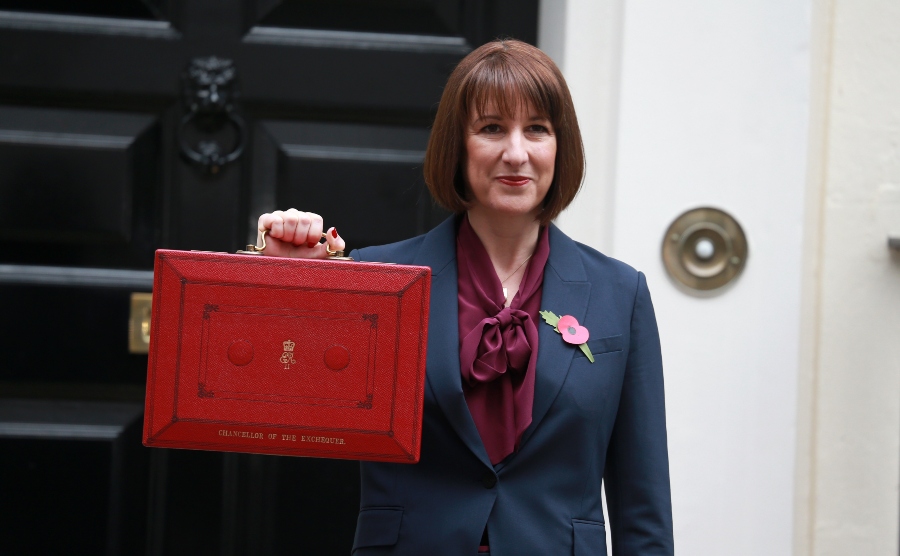Whatever your politics or financial situation, you probably found something in the past few weeks to make you yearn for a change. Most of England saw only two hours of sunshine in the first 10 days of November, while a substantial part of the USA and UK has been cast into gloom by political and economic events. So whether you’re a Trumpugee or just got a tax thumping, what are your options for getting away?
It could be the biggest Allied influx to the European mainland since 1944. The potential impacts of the British budget and the US presidential election have led to a significant rise in the number of British and American people looking to move overseas, or at least buy a bolthole in Europe.
So what has led to the desire of so many to move abroad? First we look at the British budget and its potential effects, then take a look at why so many Americans are considering their options.

Europe awaits…
The British budget
At first glance, business-owners and large-scale farmers appear the hardest hit by last month’s budget. A hike in employers’ national insurance contributions – and reduction where it kicks in, from £9,100 to £5,000 – will be an immediate and painful cost to thousands of companies. The introduction of inheritance tax on agricultural land (above £1m) was aimed at tax avoiders but also brings uncertainty to the future of some family-owned farms.
But there were other effects. For example, the Bank of England now fears that the knock-on effect of so much government spending will be to raise inflation, thus delaying interest rate cuts, with a direct impact on mortgages and credit card bills.
Away from these headlines, there are measures in Rachel Reeves’s inaugural budget that affect the property market. Let’s take a look.

The UK autumn budget, October 2024 (Image: Fred Duval via Shutterstock)
Stamp duty – a double whammy
The tax paid by buyers in a property transaction, officially stamp duty land tax (SDLT), is rarely left untouched in a budget. In the latest one, the government has imposed one immediate and blatant hike and one delayed and more masked rise. The first is the SDLT surcharge for second homes, or so-called ‘higher rate for additional dwellings’, which from 31st October 2024 increased from 3% to 5%.
“Increasing stamp duty on additional home purchases means that, based on the average asking price for a home, a landlord could face an additional charge of more than £7,000 from tomorrow,” said Rightmove property expert Tim Bannister. “In the short-term, some landlords may need to pause for thought, but in the longer-term we expect it becomes another charge that landlords become accustomed to considering.”
The second was the failure to extend the current SDLT relief thresholds, including for first-time buyers, which were implemented by the Conservative government and are set to return to previous levels at the end of March 2025. As things stand, the thresholds are due to fall back to £125,000 from the current £250,000 for all homebuyers and to £300,000 from the current £425,000 for first-time buyers.
“This decision leaves buyers facing rising property prices without the buffer of past stamp duty breaks, driving many to rush their purchases before further changes come in March 2025,” said Nick Lieb, Chief Operations Officer at Share to Buy, the country’s largest first-time buyer property portal. For a first-time buyer purchasing a property at the average UK price of £370,759, this will mean a stamp duty bill of £3,538 compared with nothing now.
The US election effect
Donald Trump is returning for a second term at the White House. His Republican Party is also on course for a clean sweep in the two congressional elections, retaking control of the Senate and House of Representatives – and boosting Donald’s ability to implement his legislative agenda. We look at the effects of these landmark elections, including the rise in ‘Trumpugees’…
The first thing to point out is that there would be plenty of Americans looking for an exit if Kamala Harris had won too.
President-elect Trump and his Republican administration are champing at the bit to take the reins of Congress, once he is inaugurated as the USA’s 47th president on 20 January 2025. Even before all the votes had been counted on election night, his emerging victory began to have effect. Now Americans wait to see how far and how quickly the Republicans will act on their pre-election rhetoric – but if reports are accurate, some have decided not to hang around to find out…

Trump’s return has increased searches for European property (Hadrian/Shutterstock)
Dollar, Wall Street and crypto
As the votes began to indicate a Trump victory on election night, financial markets in the US started to move northwards. Since 5 November, the dollar has strengthened to a seven-month high against the euro and three-month high against sterling. Similar spikes have been triggered in US stocks. The Dow Jones Industrial Average soared by 3.57%, marking its best performance in two years and the largest post-election gain in over a century. The Nasdaq technology index rose by 2.95%, and the S&P 500 climbed 2.
Grabbing headlines too was the bounce in Bitcoin and other key cryptocurrencies, which hit all-time highs. This is thanks to Trump’s support for the sector and his expected regulatory easing.
The general economic outlook post-election, at least in the short-term, is one where tax cuts and tariffs are likely to raise inflation and, hence, interest rates. “A Trump win opens the door for tax cuts, deregulation and tougher trade policy,” said investment management giant BlackRock in a statement. “House control is key. Elevated budget deficits are one factor we see pushing up inflation and long-term Treasury yields over time. We stay risk-on in US equities, supported by solid growth and earnings. Yet sticky inflation and higher-for-longer interest rates could eventually challenge risk sentiment.”
Trumpugees look north
The prospect of four years of Trump and a Republican regime appears to have spooked a sizable number of Americans, enough to push them over the edge into relocating abroad or at least entertain the idea.

Last US Exit (James Kirkikis/Shutterstock)
For most ‘Trumpugees’, hopping over the border into Canada is their easiest and fastest escape route. One of the country’s premier lettings websites, Rentals.ca, saw traffic from Americans rise significantly as Trump’s victory became apparent. Similarly, Google Trends data revealed a spike in searches like “Apartments in Canada” and “Moving to Canada”.
In Vancouver, immigration lawyer Ryan Rosenberg has set up the website Trumpugees.ca on the back of floods of enquiries from Americans exploring how to relocate over the border. And analysis by job site Jobseeker found that US-based searches for Canada increased by 2,400% during the presidential election, higher than any other country. The UK attracted the second highest spike, namely 900%, said Jobseeker.
Searches up in Europe
Trumpugees are also looking at European destinations for a new Trump-free life. “We have seen a significant increase in interest from American property-buyers across our European markets in the wake of the 2024 US presidential election, with Portugal emerging as the top destination of choice,” said Kyero.com, which promotes property in Spain, Portugal, France and Italy. Across all countries, the portal’s traffic from the USA was up 57.9% in the five days after the election. For Portugal alone it was up 138%, for Italy 88%, for France 67% and for Spain 55%.

Porto: Searches for Portuguese property were up 138%
“The results of the 2024 election seem to have motivated many Americans to explore real estate options outside the United States,” said Louise Dell, Kyero co-founder. “Our data suggests Americans are increasingly looking to relocate or diversify their real estate holdings in the wake of the election. We attribute this trend to a variety of factors, including economic uncertainty, political polarisation, and a desire for a change of scenery.”
With the dollar strengthening against the euro, increased buying power is another incentive for American relocators and buyers from the USA.
Golden opportunities across the pond
Trump or no Trump, analysis shows that certain groups of Americans were already planning to jump ship. Cue upwardly mobile millennials and so-called Gen-Z investors, including tech entrepreneurs and finance professionals, who have become increasingly disillusioned with the US’s contentious political climate.
Surveys by financial advisory and investment visa firm Arton Capital revealed that 53% of wealthy US citizens were making plans to leave their home country following the presidential election, regardless of the outcome. They found that younger millionaires were the most likely to leave, with 64% of millionaires aged between 18 and 29 years saying they were “very interested” in seeking golden visas through a residency-by-investment program overseas.
For many of these professional Trumpugees, investment visas are often the most suitable way to get residency in Europe. Most European governments offer these so-called golden visas. Depending on the country, they require the applicant to invest a minimum amount in an asset class approved by the government. Property in some form or other is usually an option and is popular option with golden visa applicants.
International wealth management specialist Holborn Assets, who help international clients obtain residency around the world, says one of its most popular golden visa destinations is Portugal. The minimum investment there is €500,000, the same as for Spain, another favourite. Turkey, Cyprus, Greece and Malta offer more affordable options, requiring from $400,000, €300,000, €250,000 and €130,000 respectively. By comparison, an investment visa for Canada requires from CAD$220,000





